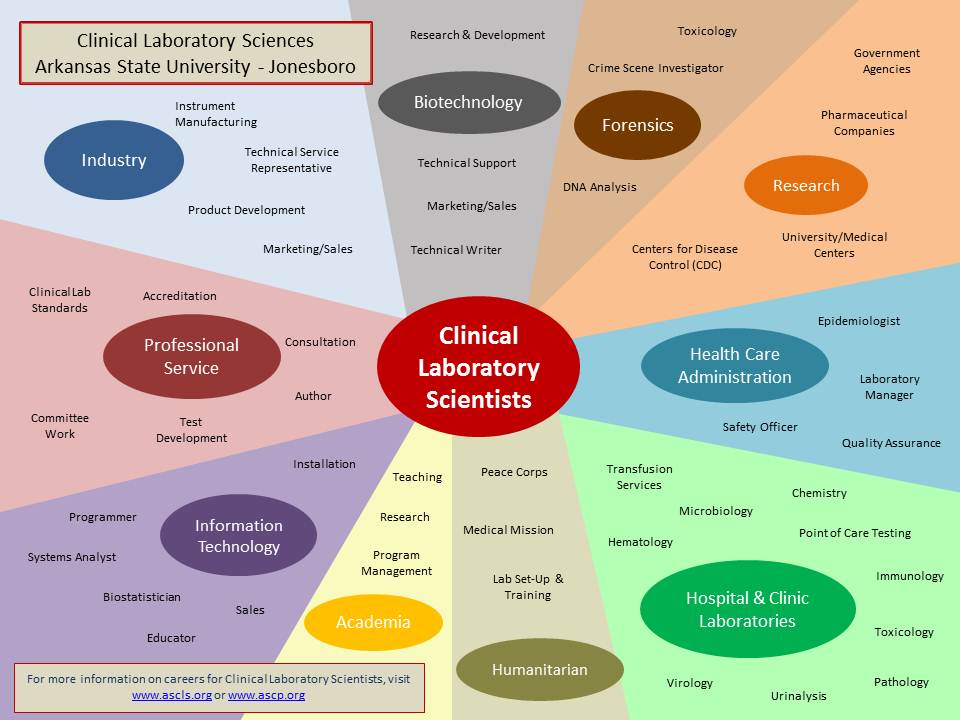Ethical Responsibility
Faculty and staff in the Department of Clinical Laboratory Sciences have a responsibility for the welfare of the patients treated or otherwise affected by students enrolled in the Clinical Laboratory Science Program, as well as the welfare of other students in the Program. In order to fulfill this responsibility, the Program has established minimum essential requirements that must be met in order for students to participate in the program, graduate, and enter the field of Clinical Laboratory Science.
Admission and Retention Factors
Admission and retention decisions for Clinical Laboratory Science are based not only on prior satisfactory academic achievement, but also on non-academic factors which serve to insure that the candidate can meet the essential requirements of the academic program. Essential requirements, as distinguished from academic standards, refer to those cognitive, physical, and behavioral abilities that are necessary for satisfactory completion of all aspects of the curriculum, including the professional attributes required by the faculty of all students for graduation. The following essential requirements have been developed in compliance with the Americans with Disabilities Act (PL101-336) and the National Accrediting Agency for Clinical Laboratory Sciences (NAACLS).
Learning
The ASU Clinical Laboratory Science curriculum requires essential abilities in information acquisition. The student must have the ability to master information disseminated in a variety of forms-- lectures, online, written and self-instructional materials, laboratory demonstrations and experiments, projected images, etc. - at a level deemed appropriate by the faculty.
Working Environment
The Clinical Laboratory Science curriculum requires students to perform delicate manipulations safely and accurately on patient specimens and instruments necessary for complete and valid diagnostic test results. The student must be able and willing to work with blood and body fluids which may be infectious, and be able to work carefully with a wide variety of chemical reagents. The students must be able to distinguish objects both macroscopically and microscopically characterizing color, odor, clarity, and viscosity of biological samples, reagents and chemical reactions. The students must have the visual acuity to discriminate among structural elements and fine lines in a minimal contrast setting.
The student must have sufficient upper body muscle coordination to practice safe specimen handling. The student must be able to perform moderately taxing and continuous physical work, which may require prolonged sitting and/or standing for several hours. The student must be able to lift and move objects, e.g., load individual tubes in an instrument and move test tube racks from one bench to another. The student must have the touch discrimination to discern veins and arteries in order to perform venipunctures. The student must have the manual dexterity to fill and dispense liquids using a bulb and calibrated pipette, streak agar plates for isolation, and dilute specimens accurately.
The student must possess the emotional stability needed to work accurately and safely under stress, e.g., work under time constraints, read and record numbers, perform repetitive tasks, concentrate in distracting situations, and make subjective evaluations and decisions, realizing that mistakes may have a high impact on patient care. The student must be able to adapt to changing work environments and be able to prioritize tasks.
Communication
The student must be able to communicate effectively in both verbal and written English in order to transmit information clearly and accurately to patients as well as members of the health care team. The appropriate communication at times will rely on the student’s ability to make a correct judgment in seeking supervisory assistance in a timely manner.
Character
The student must possess attributes which include dependability, integrity, responsibility and tolerance. The student must show respect for self and others, work independently as well as with others, and project an image of professionalism.
Disability and Associated Risk
The student is advised that certain disabilities may limit employment opportunities. Further, immunocompromised individuals may put themselves at personal risk due to the presence of infectious agents in all areas of clinical laboratory science.
These technical standards identify the essential requirements of the Clinical Laboratory Science Program for admission, retention and graduation. It is, therefore, the responsibility of the student with disabilities to request those accommodations that he/she feels are reasonable and are needed to execute the essential requirements described. The CLS Program faculty will decide which accommodations can be provided without causing an undue burden.







